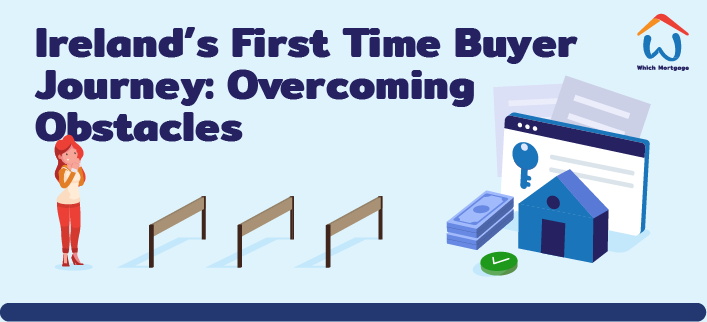
Ireland's First Time Buyer Journey: Overcoming Obstacles
2023-09-22Central Bank Rules
Notwithstanding the easing of the lending limits, the minimum deposit requirement for first time buyers, set at 10% of the property's purchase price, remains unchanged. For many first time buyers, accumulating this deposit can be challenging. And, in addition to the 10% deposit, first time buyers will also have to save for expenses such as stamp duty, legal fees, valuation fees, and the cost of furnishing their new home. Fortunately, Government supports are available to bridge the financial gap between their mortgage and the property's purchase price.
The Help to Buy (HTB) Scheme
The Help to Buy Scheme, extended until the end of 2024, offers assistance to first time buyers interested in buying or self-building a new residential property. This scheme aids in financing the required deposit by refunding the Income Tax and Deposit Retention Tax (DIRT) paid during the preceding four tax years. Eligible applicants can receive the lesser of €30,000, 10% of the new build property's value, 10% of the approved valuation of a self-build property, or the amount of income tax and DIRT paid over the four years preceding the HTB application.
First Home Scheme (FHS)
The First Home Scheme is an equity scheme designed for first time buyers purchasing newly constructed homes, or self-building their home.
New-builds: Under the FHS, first time buyers are given the opportunity to receive up to 30% of the property's purchase price, effectively bridging the affordability gap between the deposit and mortgage, and the price of the home. When combined with the HTB Scheme, the FHS can fund up to 20% of the home's purchase price. In return for the funding, the Government will get an equity share in the home equal to the percentage of the funding they have provided.
Self-builds: From this week, the scope of the FHS has been extended to include self-builders who are building their first home anywhere in the Republic of Ireland. This means that individuals who have a site, or are purchasing a site, but do not have sufficient funds to build their home when they combine their deposit and mortgage, may be able to bridge the funding gap by availing of the self-build product offered by the FHS. Self-builders may qualify for funding up to 30% of the building costs of their home. If they are also availing of the Help to Buy Scheme, the maximum amount of funding they will be eligible for from the FHS will be 20% of the build cost.
Tenant Home Purchase Scheme (THPS)
In March 2023, the FHS was expanded to include the Tenant Home Purchase Scheme, affording tenants who have received a Notice of Termination the opportunity to purchase their rental property from their landlord. The THPS facilitates tenants in bridging the funding gap between their mortgage and deposit, enabling them to acquire their current rental home. In contrast to the FHS, the THPs permits the purchase of second-hand properties, and THPS applicants cannot avail of the Help to Buy Scheme.
The introduction of the THPS came at an opportune time, with reports from the Residential Tenancies Board revealing that more than 40,000 homes have exited the rental market over the past five years. Landlords are leaving the rental market for various reasons, thereby creating an opening for tenants facing lease termination to purchase their rental homes. With Tenant Home Purchase Scheme assistance, tenants with insufficient funds to buy their rental property by combining the mortgage they can receive and the deposit they have saved, can seek to bridge the funding gap.
More Questions?
Talk to one of our mortgage specialists now!
BOOK AN APPOINTMENT


